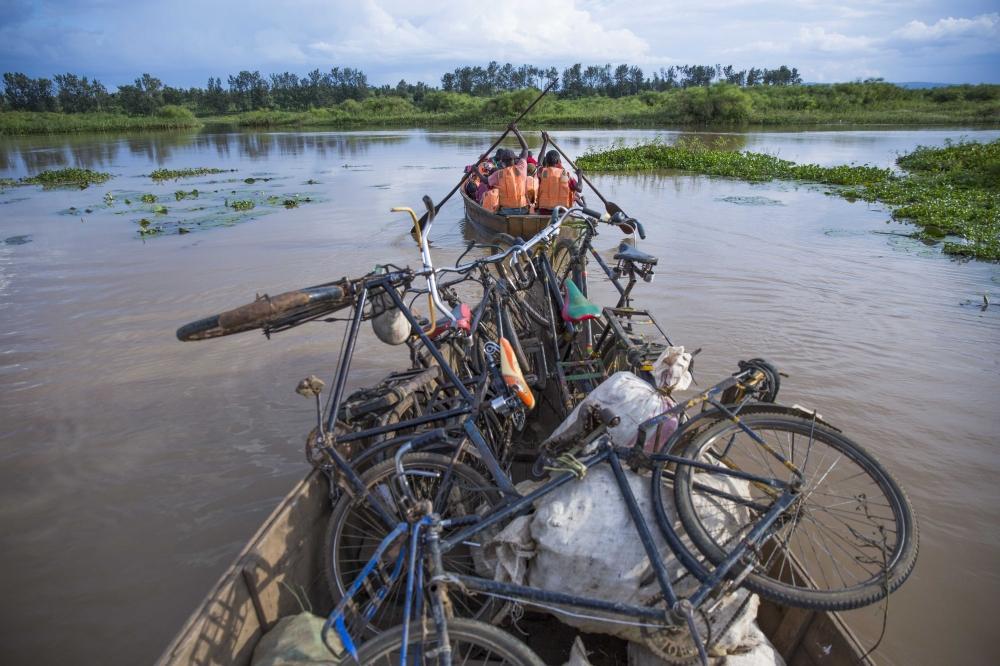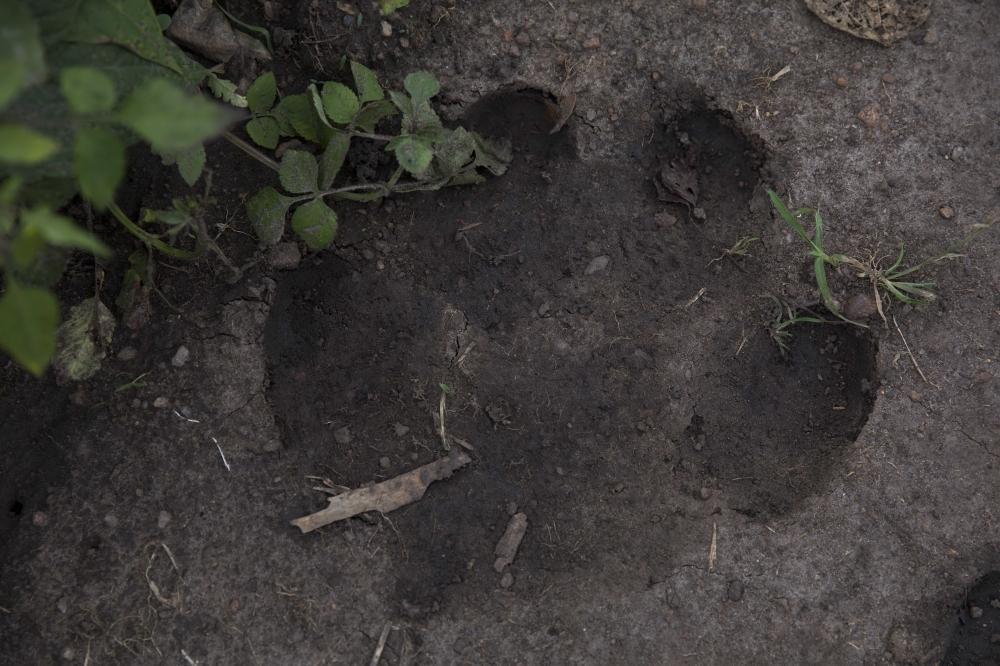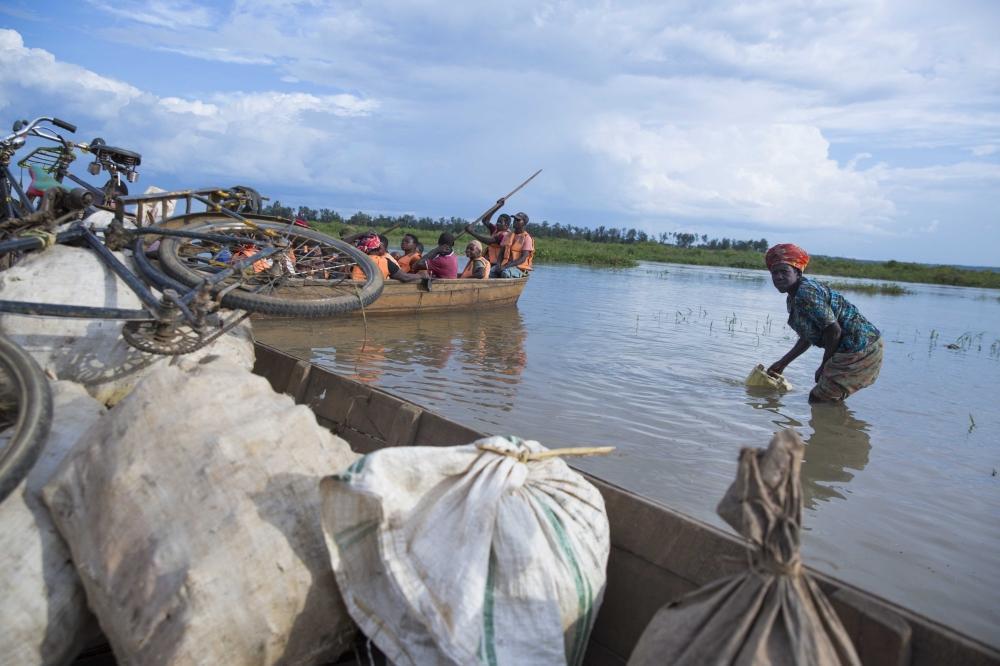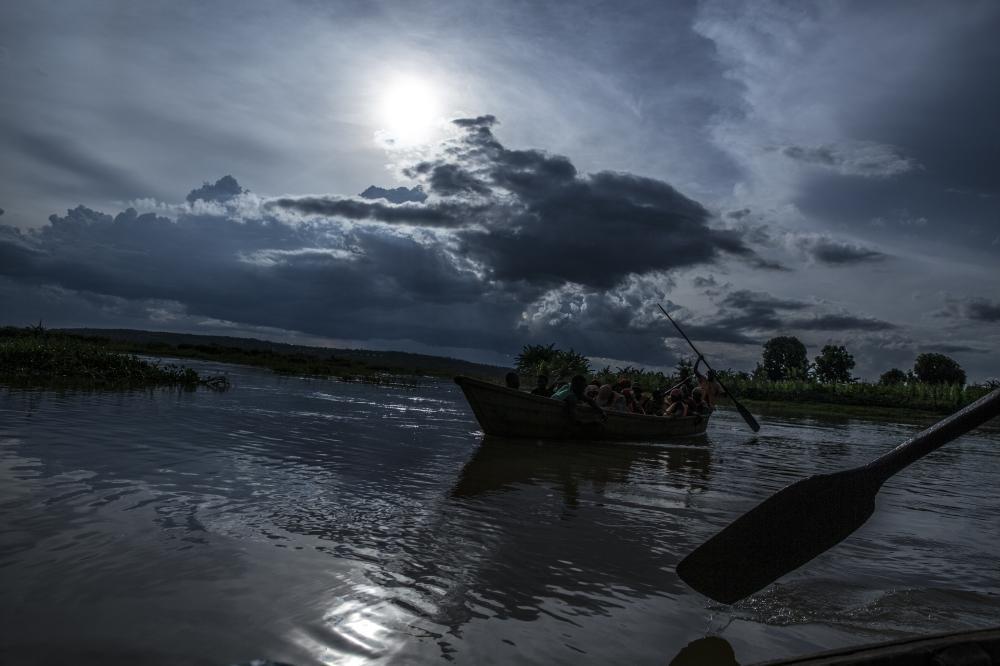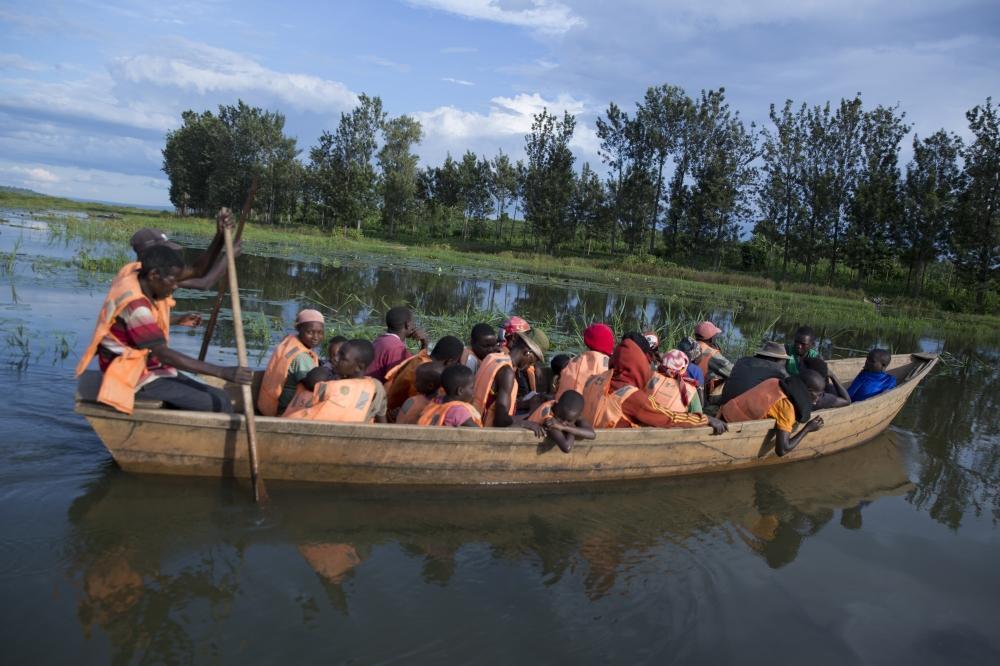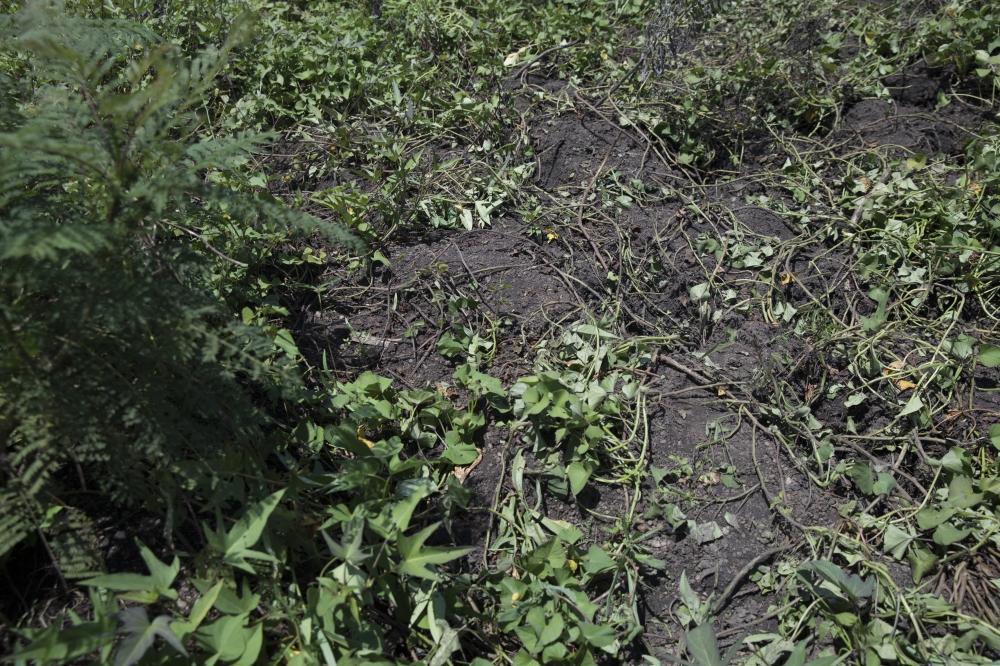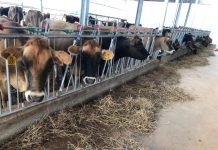Africa-Press – Rwanda. The government has announced an ambitious resettlement programme to relocate residents living on 11 of Rwanda’s inhabited islands, citing safety concerns and the high cost of delivering essential infrastructure.
Speaking before the Senate’s Committee on Social Affairs and Human Rights, on June 16, the Minister of State for Local Government, Marie Solange Kayisire, revealed that of Rwanda’s 60 islands, only 14 are inhabited. As noted, only three – Nkombo, Bugarura, and Birwa, will remain inhabited.
“These relocations are necessary. The geography of these islands poses serious risks to residents, and delivering services like clean water, electricity, and healthcare is often more expensive than resettlement itself,” she said.
Across the 14 inhabited islands, more than 4,600 households comprising 25,638 people will be impacted.
A hippo footprint photographed on Sharita Island on May 3, 2024. Residents are calling for urgent relocation due to a lack of essential services and a growing hippo population, particularly during the rainy season.
The 11 islands marked for full relocation span several areas including Mwegerera and Mukira in Musanze District; Munanira and Bigwa in Burera District; Sharita and Mazane in Bugesera District; Gihaya in Rusizi District; Mushungo and Muzira in Nyamasheke District; as well as Kirehe, Ruzi, and Tereri in Nyamasheke District.
In Musanze’s Mwegerera and Mukira islands, home to 38 families, children rely on boats to reach mainland schools while in Bigwa, in Burera District, 78 families live without reliable solar power and their infrastructure is in a poor condition.
According to the ministry, some communities have already begun relocation.
In Munanira island, 26 families started moving, with the process expected to cost Rwf127.6 million while in Sharita, 212 families were earlier resettled under the IDP Rweru and IDP Kivusha programmes. The district now seeks Rwf2.5 billion to resettle the 84 families that remain.
“We’re not just relocating people; we’re integrating them into government programmes like Girinka, social protection, and income-generating projects,” Kayisire added.
Nkombo island, home to over 18,000 residents, is one of the islands that will remain settled and is being upgraded with infrastructure, including a new health center to complement existing services. Nkombo is treated as a full administrative sector, much like mainland sectors.
Gratia Nzamwitakuze fetches water from the Nyagisenyi stream. She says drinking the unfiltered lake water has caused persistent health issues among residents.
The Gihaya island case in Rusizi District shows a different dynamic.
Some residents were relocated after selling land to a private investor who is building the Gihaya Island Resort.
By and large, the lawmakers welcomed the plan but raised important concerns.
Sen. Sosthène Cyitatire noted, “Some islands like Nkombo are viable for habitation, but others must be prioritized for urgent relocation.”
Sen. Jean Pierre Dusingizemungu called for detailed action plans from local governments.
“We need clear budgets and demographic profiling showing the numbers of women, children, and elders so that we design relevant support programmes for them at relocation sites.”
Sen. Epiphanie Kanziza criticized unfair compensation, saying, “In some cases, residents are offered Rwf500,000 to Rwf700,000. That’s not enough to secure land or rebuild. They end up depending on the government again.”
Kayisire reassured the Senate that each case is handled individually and that social welfare is central to the process.
“The government promises not only safer environments for relocated communities but also long-term socioeconomic support to ensure their resilience beyond the islands,” she said.
On Sharita Island, residents must take a long canoe journey to access essential services such as markets, healthcare, and secondary schools.
Sharita Island residents board a small boat after returning from the market
A view of a potato plantation destroyed by hippos on Sharita Island, May 2, 2024
For More News And Analysis About Rwanda Follow Africa-Press

